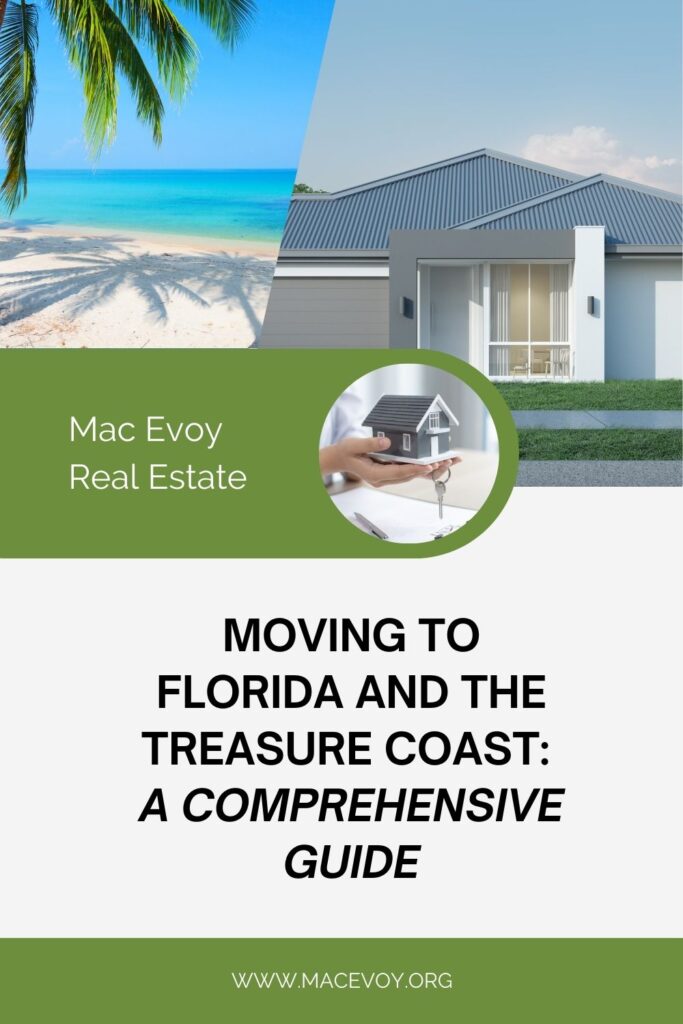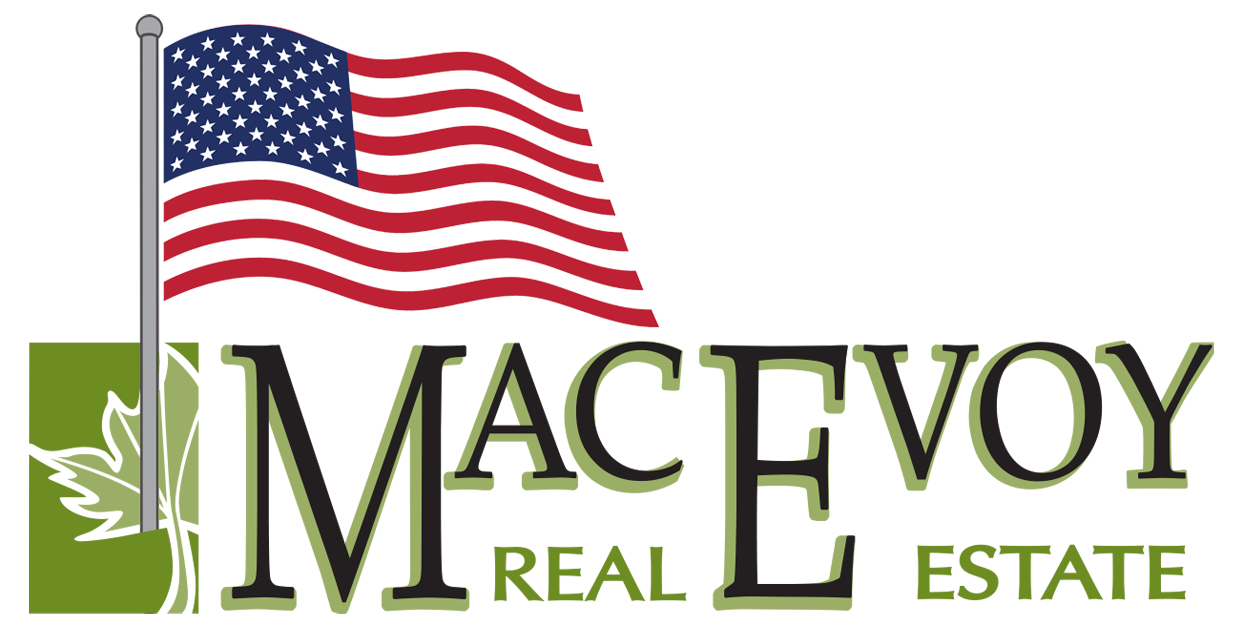
- Overview of the region’s natural beauty, climate, and lifestyle
- Recent trends in migration to Florida and the Treasure Coast
- Planning your budget and timeline
- Choosing the right neighborhood and home type
- Researching local schools, healthcare providers, and other community resources
- Understanding Florida’s tax system and insurance requirements
- Understanding the role of a real estate agent
- Researching and choosing the right agent for you
- Working with an agent remotely or in-person
- Understanding the local real estate market and prices
- Finding the right home or rental property for your needs and budget
- Financing options and mortgage pre-approval
- Making an offer and negotiating the best price
- Hiring a moving company or DIY moving tips
- Understanding Florida’s licensing and registration requirements for vehicles and pets
- Updating your address and transferring utilities
- Getting involved in the local community and finding new hobbies
- Navigating Florida’s laws and regulations
- Tips for adjusting to life in Florida and the Treasure Coast
- Recap of the benefits of moving to Florida and the Treasure Coast
- Final tips and recommendations for a successful move
1. Introduction: Why Move to Florida and the Treasure Coast?
Florida is one of the most popular destinations for people looking to relocate to a new state. The Sunshine State is known for its tropical climate, beautiful beaches, and lush natural landscapes. Among the regions in Florida, the Treasure Coast stands out for its unique blend of culture, history, and scenic beauty.
Overview of the region’s natural beauty, climate, and lifestyle
The Treasure Coast is named for the treasures that have been found in its waters over the years, including gold, silver, and other precious metals. Located on the Atlantic coast of Florida and encompasses four counties: Martin, St. Lucie, Indian River, and Okeechobee. The region is known for its beautiful beaches, crystal-clear waters, and abundant natural resources. The area is home to several state parks and nature preserves, including the St. Lucie Inlet Preserve State Park, the Indian River Lagoon Preserve State Park, and the Savannas Preserve State Park. The warm tropical climate provides year-round opportunities for outdoor recreation, including water sports, fishing, golfing, and hiking.
In addition to its natural beauty, the Treasure Coast is rich in culture and history. The region has a variety of art galleries, museums, and cultural events that showcase its unique heritage. There are also numerous dining and shopping opportunities, including quaint downtown areas with locally-owned boutiques and restaurants.
Recent trends in migration to Florida and the Treasure Coast
Florida has been experiencing a significant influx of new residents in recent years, with many people choosing to move from high-cost states in the northeast and west. The COVID-19 pandemic has also accelerated the trend of migration to Florida, as more people are seeking warmer climates and more space in the wake of remote work and social distancing.
The Treasure Coast, in particular, has seen a surge in real estate activity, with property values increasing steadily. Despite the pandemic, the real estate market in the Treasure Coast has remained robust, with sales remaining strong throughout 2020 and into 2021. This can be attributed in part to the region’s desirable climate and lifestyle, as well as low interest rates and a growing demand for single-family homes.
Whether you’re retiring, starting a new job, or simply looking for a change of pace, moving to the Treasure Coast of Florida offers endless opportunities for relaxation, recreation, and cultural enrichment. The next sections of this guide will provide a comprehensive overview of the steps involved in moving to Florida and the Treasure Coast, including planning your move, finding a home, and settling into your new community.
2. Preparing for Your Move
Planning your budget and timeline:
Moving can be a costly and time-consuming process. Before you start packing your bags, it’s important to set a budget and timeline for your move. This will help you stay organized and avoid any unexpected expenses or delays. Make sure to consider the costs of hiring a moving company, renting a truck, or packing supplies.
- Consider the cost of living in Florida and how it compares to your current location.
- Determine how much you can afford to spend on housing, transportation, and other living expenses.
- Create a timeline for your move that includes important deadlines, such as when to give notice at your job and when to transfer utilities.
Choosing the right neighborhood and home type:
The Treasure Coast offers a wide variety of neighborhoods and home types, from waterfront homes to condos and apartments. When choosing the right neighborhood and home type, consider factors such as your budget, lifestyle, and commute time. If you have children, you may also want to research the local schools and parks.
- Research the different neighborhoods in the Treasure Coast region to find the right fit for you and your family.
- Consider factors like proximity to work, school districts, and amenities like parks and shopping centers.
- Determine the type of home that best suits your needs and budget, whether it’s a single-family home, condo, or townhouse.
Researching local schools, healthcare providers, and other community resources:
Moving to a new area can be intimidating, but there are plenty of resources available to help you adjust. Research the local schools, healthcare providers, and other community resources to get a better sense of the area. Consider visiting local parks, beaches, and attractions to get a feel for the community.
- If you have children, research local schools to find the best fit for your family.
- Look for healthcare providers that meet your needs, such as doctors, dentists, and specialists.
- Research community resources like libraries, parks, and community centers to find ways to get involved and meet new people.
Understanding Florida’s tax system and insurance requirements:
Florida has a unique tax system, with no state income tax and a low sales tax rate. However, it’s important to understand the state’s property tax system and insurance requirements before buying a home. Make sure to research insurance options for your home, car, and health to ensure that you are adequately covered.
Overall, preparing for your move to the Treasure Coast requires careful planning and research. By taking the time to consider your budget, neighborhood preferences, and community resources, you can make the transition to your new home as smooth as possible.
- Research Florida’s tax system to understand how it differs from your current location and how it may impact your budget.
- Consider insurance requirements for your new home, such as flood insurance and hurricane insurance.
- Make sure you understand the process for obtaining a driver’s license and registering your vehicle in Florida.
3. Finding a Real Estate Agent
Understanding the Role of a Real Estate Agent
When buying or selling a home in Florida, it’s crucial to have a real estate agent who can guide you through the process. A real estate agent is a licensed professional who provides services to clients in buying or selling properties.
The Importance of a Real Estate Agent:
A real estate agent plays a crucial role in ensuring that the home buying or selling process goes smoothly. They have the expertise and knowledge of the market that allows them to provide valuable insights into the local real estate market. Real estate agents also have access to multiple listing services (MLS), which gives them access to a vast network of properties and potential buyers.
What Real Estate Agents Do:
Real estate agents provide a range of services, including market analysis, property listing, home search assistance, property showings, offer negotiation, and closing. They can also help clients with paperwork, contracts, and legal issues. Real estate agents have access to tools and resources that make the process more efficient and less stressful for their clients.
The Difference between a Buyer’s Agent and a Seller’s Agent:
A buyer’s agent works exclusively with homebuyers, assisting them in finding the right property, negotiating the best price, and closing the deal. They work to protect the buyer’s interests and ensure that they get the best possible outcome.
On the other hand, a seller’s agent works exclusively with home sellers, assisting them in marketing their property, finding potential buyers, negotiating offers, and closing the deal. They work to protect the seller’s interests and ensure that they get the best possible outcome.
Researching and Choosing the Right Agent for You
Choosing the right real estate agent is crucial to the success of your home buying or selling experience. Here are some steps you can take to find the right agent for you:
- Ask for recommendations: Start by asking friends, family members, or colleagues who have recently bought or sold a home for recommendations. They can provide you with valuable insights into their experiences and the agents they worked with.
- Check online reviews and ratings: Look up agents in your area on real estate websites like Zillow or Realtor.com and read their reviews and ratings. This can give you a better idea of the agent’s track record and what their past clients have to say about them.
- Conduct interviews with potential agents: Once you have a shortlist of potential agents, set up interviews with them to get a better sense of their communication style, experience, and approach to real estate. You can do this in-person or remotely through video chat or phone.
- Consider experience, expertise, and communication skills: When choosing an agent, consider their experience in the industry, their expertise in the local market, and their communication skills. You want someone who is knowledgeable, trustworthy, and responsive to your needs and concerns.
By taking the time to research and choose the right agent, you can ensure a smoother and more successful real estate transaction.
Working with an Agent Remotely or In-Person
When it comes to working with a real estate agent, there are different ways to do it: remotely or in-person. Each has its advantages and disadvantages, and you must choose the method that works best for you.
Advantages and disadvantages of working remotely or in-person
- Working in-person allows for face-to-face interactions and better communication.
- Working remotely allows for flexibility, especially for those who are unable to meet in-person due to distance or busy schedules.
- In-person meetings may be time-consuming, while remote communication can be faster and more efficient.
- Working remotely may result in misunderstandings due to the lack of physical interaction, while in-person meetings can help establish rapport and trust.
How to effectively communicate with your agent
Regardless of whether you choose to work remotely or in-person, effective communication is crucial for a successful real estate transaction. Here are some tips for effective communication with your agent:
- Establish your preferred method of communication, whether it’s email, phone, or text.
- Keep your agent informed of your needs and expectations.
- Ask questions and clarify any misunderstandings.
- Be responsive and timely in your communication.
The role of technology in remote real estate transactions
Technology has played a significant role in remote real estate transactions, making it easier for clients and agents to work together regardless of distance. Here are some of the ways technology can help:
- Video conferencing tools like Zoom or Skype can facilitate virtual property tours and remote meetings with your agent.
- Electronic document signing platforms like DocuSign make it easy to sign documents from anywhere.
- Real estate websites and apps like Zillow, Redfin, or Realtor.com provide up-to-date information on available properties and real estate trends.
Tips for working with an agent from out of state or out of the country
If you’re working with an agent who is located out of state or out of the country, here are some tips to ensure a smooth transaction:
- Ask for recommendations and do your research before choosing an agent.
- Establish a clear communication plan, including your preferred method of communication and availability.
- Use video conferencing tools to facilitate virtual property tours.
- Be prepared for potential time zone differences and schedule meetings accordingly.
- Make sure you have access to the necessary technology, such as a reliable internet connection and a smartphone or computer.
- By following these tips, you can ensure a smooth real estate transaction, whether you’re working with an agent remotely or in-person.
4. Home Buying and Renting
Understanding the Local Real Estate Market and Prices
- Researching local market trends and property values
- Comparing prices of different types of properties and neighborhoods
- Getting to know the local real estate landscape and regulations
One of the first steps in buying or renting a property is to research the local real estate market and prices. This will help you get an idea of what properties are available, what types of properties are in demand, and what prices you can expect to pay. You can research local market trends and property values through online real estate websites, local newspapers, or by consulting with a real estate agent.
Comparing prices of different types of properties and neighborhoods is also essential when looking for a home or rental property. It’s important to consider your budget, the features you want, and the location you prefer. You can compare prices of different types of properties and neighborhoods by researching the cost per square foot, property tax rates, and other relevant factors.
Getting to know the local real estate landscape and regulations is also important. You need to understand local zoning regulations, property taxes, and other rules and regulations that may affect your buying or renting decision.
Finding the Right Home or Rental Property for Your Needs and Budget
- Determining your needs, preferences, and budget
- Searching for properties online and offline
- Narrowing down your choices and visiting potential properties in person or virtually
Once you have a good understanding of the local real estate market and prices, it’s time to start looking for the right home or rental property. Determine your needs, preferences, and budget before you start your search. Consider factors such as the number of bedrooms and bathrooms, the size of the property, the location, and other amenities.
You can search for properties online and offline by using real estate websites, local classified ads, or by working with a real estate agent. Narrow down your choices and visit potential properties in person or virtually to get a better sense of the property.
Financing Options and Mortgage Pre-Approval
- Understanding the different types of mortgages and financing options available
- Preparing for the mortgage application process
- Getting pre-approved for a mortgage and knowing how much you can afford
Before you start your home or rental property search, it’s important to understand the different types of mortgages and financing options available. Preparing for the mortgage application process and getting pre-approved for a mortgage will help you know how much you can afford.
You can choose from a variety of financing options such as fixed-rate mortgages, adjustable-rate mortgages, and government-backed loans. Working with a mortgage broker or a lender can help you decide which option is right for you and get pre-approved for a mortgage.
Making an Offer and Negotiating the Best Price
- Knowing how to make an effective offer on a property or rental
- Understanding the negotiation process and common pitfalls
- Working with your agent to get the best possible deal
Once you’ve found the right property, it’s time to make an offer and negotiate the best price. Understanding the negotiation process and common pitfalls can help you get the best possible deal. Working with your real estate agent can help you navigate the process and ensure that your offer is competitive and reasonable.
Knowing how to make an effective offer on a property or rental is also important. Consider factors such as the asking price, the condition of the property, and the local market conditions. Work with your real estate agent to craft an offer that is both reasonable and competitive.
Understanding the local real estate market and prices, finding the right home or rental property, and securing financing are essential steps in the home buying or renting process. Working with a reputable real estate agent can help you navigate the process and ensure that you get the best possible outcome for your investment.
5. Moving Logistics
Hiring a Moving Company or DIY Moving Tips
- Comparing the pros and cons of hiring a moving company versus moving yourself
- Researching and choosing a reputable moving company
- Preparing for a DIY move, including packing tips and renting a moving truck
One of the first decisions to make when planning your move is whether to hire a moving company or handle it yourself. There are pros and cons to each option, and it’s crucial to compare them to determine which is best for your needs and budget.
If you decide to hire a moving company, research and choose a reputable and reliable one that can handle your move efficiently and safely. Ask for recommendations, check online reviews, and request quotes from several companies before making your decision.
On the other hand, if you choose to move yourself, there are several tips and tricks to make the process smoother. These include decluttering and organizing your belongings, packing efficiently, and renting a moving truck that suits your needs.
Understanding Florida’s Licensing and Registration Requirements for Vehicles and Pets
- Registering your vehicle with the Florida Department of Highway Safety and Motor Vehicles
- Obtaining a Florida driver’s license
- Meeting Florida’s pet import requirements, including vaccinations and health certificates
If you’re moving to Florida from another state or country, you’ll need to register your vehicle with the Florida Department of Highway Safety and Motor Vehicles and obtain a Florida driver’s license. You’ll also need to meet Florida’s pet import requirements, including vaccinations and health certificates.
It’s essential to research and understand these requirements well in advance of your move to avoid any delays or complications.
Updating Your Address and Transferring Utilities
- Changing your address with the United States Postal Service
- Notifying banks, credit cards, and other important organizations of your move
- Transferring utilities, such as electricity, gas, water, internet, and cable, to your new home.
Changing your address and transferring utilities are crucial steps in the moving process. You’ll need to notify the United States Postal Service of your new address and update your address with banks, credit cards, and other important organizations.
You’ll also need to transfer utilities, such as electricity, gas, water, internet, and cable, to your new home. Research and contact utility providers in advance to ensure a smooth transition and avoid any interruptions in service.
By following these steps, you can ensure a successful and stress-free move to your new home on the Treasure Coast of Florida.
6. SETTLING IN
When moving to a new state, adjusting to the local community and lifestyle can be a significant challenge. Here are some tips to help you settle into life in Florida and the Treasure Coast:
Getting involved in the local community and finding new hobbies
One of the best ways to feel at home in a new place is to get involved in the local community. Here are some ideas for finding new hobbies and making new connections:
- Joining local clubs or organizations: There are many different groups and clubs in the Treasure Coast area, ranging from social clubs to hobby groups. Joining a group can be an excellent way to meet new people with similar interests.
- Participating in community events and festivals: The Treasure Coast is known for its lively community events and festivals. Attending these events can be a great way to get a taste of the local culture and meet new people.
- Finding recreational activities: The area offers plenty of outdoor activities, such as hiking, biking, golfing, and water sports. Joining a sports league or fitness class can also be a great way to meet new people and stay active.
- Exploring cultural attractions: The region has a rich history and offers many cultural attractions, such as museums, galleries, and theaters. Visiting these places can be an excellent way to learn about the local history and art scene.
Navigating Florida’s Laws and Regulations
Florida has its own set of laws and regulations that may be different from what you’re used to. Here are some important things to keep in mind:
- Understanding Florida’s tax system: The state has different tax laws, such as property tax and sales tax, which may affect your finances. Make sure to research and understand these taxes to avoid any surprises.
- Familiarizing yourself with traffic laws and driving regulations: The state has its own set of traffic laws and regulations, which can vary from other states. Understanding these laws can help you stay safe while driving.
- Knowing the state’s rules and regulations for hunting and fishing: If you enjoy hunting or fishing, make sure to research the state’s rules and regulations for these activities.
- Understanding Florida’s insurance requirements: The state has specific insurance requirements, such as hurricane insurance, which may be different from other states. Make sure to research and understand these requirements to ensure you have the necessary coverage.
Tips for Adjusting to Life in Florida and the Treasure Coast
- Coping with the heat and humidity: The region is known for its warm and humid climate. Make sure to stay hydrated and wear sunscreen to protect yourself from the sun’s rays.
- Learning about local customs and traditions: Florida has a unique culture and history. Take the time to learn about local customs and traditions to gain a better understanding of the community.
- Getting to know your neighbors and building relationships: Building relationships with your neighbors can help you feel more connected to your new community.
- Adjusting to any cultural differences or changes in lifestyle: Moving to a new state can bring significant changes in lifestyle and culture. Be open to these changes and try to embrace them as part of your new adventure.
7. Final Tips
Recap of the Benefits of Moving to Florida and the Treasure Coast
Moving to Florida and the Treasure Coast can offer a lot of benefits for those looking for a change in scenery. Here are some of the reasons why it’s a great decision:
- Climate: With an average temperature of 70°F and plenty of sunshine year-round, Florida’s climate is a big draw for many people looking to escape the cold and gray weather.
- Lifestyle: The Treasure Coast offers a laid-back lifestyle with a focus on outdoor activities and a strong sense of community. The region boasts miles of pristine beaches, lush greenery, and numerous outdoor recreational opportunities such as boating, fishing, and hiking.
- Affordability: Compared to other states in the US, Florida has a relatively low cost of living, making it an affordable place to live and raise a family.
- Job market: Florida’s job market has been growing in recent years, with many new businesses and industries establishing themselves in the state. This means that there are plenty of opportunities for those looking to start a new career or advance their current one.
Final Tips and Recommendations for a Successful Move
- Plan ahead: Moving can be a stressful and overwhelming process, so it’s important to plan ahead and give yourself plenty of time to prepare. Make a checklist of everything you need to do and when, and try to stick to it as closely as possible.
- Research and choose wisely: Whether you’re looking for a real estate agent, a moving company, or a new school for your children, make sure to do your research and choose wisely. Look for recommendations, read reviews, and ask plenty of questions before making any decisions.
- Stay organized: Moving involves a lot of paperwork, so make sure to stay organized and keep important documents in a safe and easily accessible place. This includes things like your lease or mortgage documents, insurance policies, and your moving contract.
- Take care of yourself: Moving can take a toll on both your physical and mental health, so make sure to take care of yourself throughout the process. Get enough rest, eat healthy meals, and take breaks when you need to.
- Embrace the adventure: Moving to a new place can be a big adventure, so try to embrace it and have fun along the way. Explore your new community, meet new people, and enjoy all that Florida and the Treasure Coast have to offer.
Call 1-844-Mac Evoy Today!
Whether you’re a first-time homebuyer, seasoned investor, or someone looking to rent in the Treasure Coast, Mac Evoy Real Estate Co. is committed to helping you find the perfect property.
Their team of knowledgeable and experienced agents understands the unique challenges of real estate transactions and will work tirelessly to provide personalized solutions that meet your specific needs. With their expertise and deep understanding of the local market, you can rest assured that you’ll receive the highest level of service and support every step of the way.
The author is Carolyn Mac Evoy, Broker of Mac Evoy Real Estate Co., a 2nd generation real estate firm, started in NJ and continued in Florida. Should you be needing housing or commercial property or farm land in Florida, please contact her at: carolyn@macevoy.org or by calling 772.925.4791.









